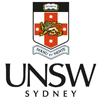Bachelor of Vision Science
UNSW
CRICOS provider number: 00098G TEQSA provider ID: PRV12055
Courses included
code
This course has been cancelled
^ The indicative annual tuition fee is based on a full-time student enrolment load of 48 credit points per year, or 1.0 Equivalent Full-Time Student Load (1.0 EFTSL). Tuition fees are reviewed annually and may increase each year. Tuition fees are calculated on a student’s exact enrolment. UNSW students enrolled in most courses have some flexibility in the subjects they choose. At times these subjects will be from outside their own faculty. For example, a Commerce student may choose elective subjects from a range of other faculties; a student in a combined Law degree with Engineering or Science will choose subjects from Science and Engineering and subjects from Law. These choices may result in a higher or lower total fee for the year.
About
Vision Science is the study of the sensory processes that underlie vision and the development and use of vision-related technologies. This degree aims to develop scientists who understand how we see and interact with our world. Graduates will have a deep understanding of a broad range of areas including sensation and perception, psychophysics, optics, anatomy and functioning of the eye, oculo–visual disorders, introductory pharmacology, visual aids and dispensing, the consulting room interface, and research design, methods and experimentation.
ATAR Profile: Some UNSW offers were issued based on the UNSW Gateway Early Conditional Offer Scheme with a lower ATAR entry requirement. Refer to the Admissions Information for a complete ATAR profile by degree.
Areas of study
Vision science.
Career opportunities
Ophthalmic assistant in ophthalmic industries and in eye and vision research; development of vision correction devices such as contact lenses, spectacles, ocular implants, imaging and drug development in optics, vision science and ophthalmology research laboratories; and health promotion in government and non-government organisations.
Fees and charges
Refer to UNSW current fee information.
Admission criteria
Applicants with recent secondary education
Assumed knowledge: Chemistry, English Advanced, Mathematics Advanced, Physics.
Other applicants
Refer to UNSW general admission criteria.
Student profile
Visit the UNSW website.
Further information
View all details of this course on the UNSW website.
The academic content of all programs is subject to routine review.
Course updates
Courses are added and cancelled throughout the admissions year and course details are subject to change. Check the course search regularly.
Double degree options
Double degree options are available in a number of UNSW courses. For further information, visit the UNSW Sydney website.
Honours at UNSW
Studying honours offers a chance to develop your research and professional skills guided by staff who are passionate about research and the development of new researchers. Honours is an integral component of many UNSW courses or may be offered as an additional year of study to meritorious students.
Medicine and Health
As one of the world's top 50 medical faculties*, UNSW Medicine & Health is tackling the most pressing health challenges and delivering results with real-world impact. Our undergraduate degrees will equip you with the knowledge and practical skills you need to thrive in the healthcare industry.
You’ll learn from world leading researchers, teaching staff and practitioners, and benefit from hands-on clinical training in some of Australia’s largest hospitals and health organisations. Join a supportive community focused on improving health outcomes for all and make a difference as you apply your skills to real patients and global health problems.
UNSW Medicine & Health offer a range of undergraduate degrees including:
- 428000 Bachelor of Medical Studies/Doctor of Medicine
- 428400 Bachelor of Pharmaceutical Medicine/Master of Pharmacy
- 428300 Bachelor of Nutrition/Master of Dietetics and Food Innovation
- 428500 Bachelor of Exercise Science/Master of Physiotherapy and Exercise Physiology
- 428600 Bachelor of Applied Exercise Science/Master of Clinical Exercise Physiology
- 428200 Bachelor of International Public Health
- 429740 Bachelor of Vision Science
- 429750 Bachelor of Vision Science/Master of Clinical Optometry
Visit the UNSW Medicine & Health website.
*QS World University Rankings by Subject 2021
